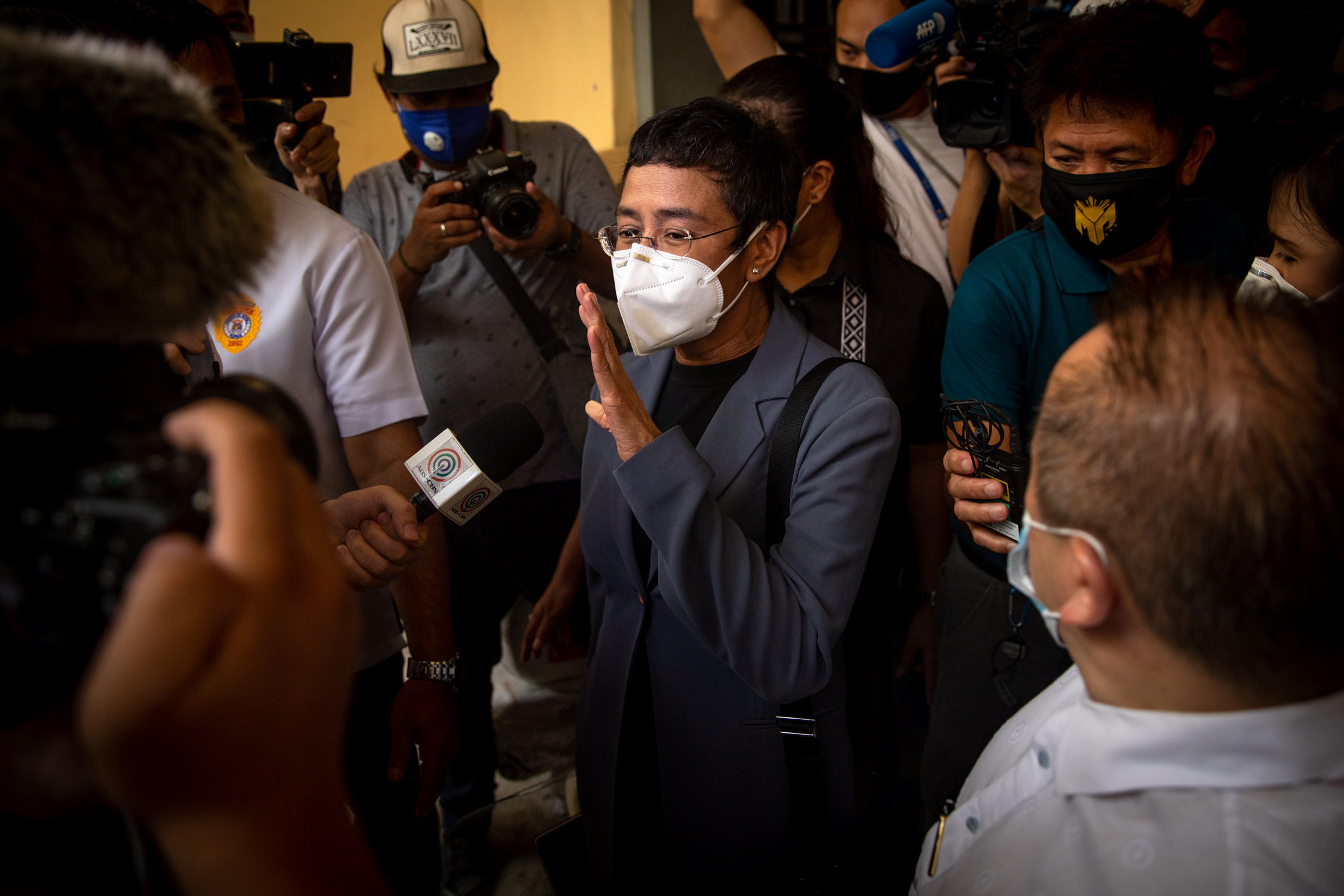Court finds prominent Philippine journalist and Duterte critic Maria Ressa guilty of cyber-libel
Sign up now: Get ST's newsletters delivered to your inbox

Maria Ressa was sentenced to up to six years in jail, but can post bail and appeal the ruling.
PHOTO: REUTERS
Follow topic:
MANILA - A court on Monday (June 15) found one of the Philippines' most prominent journalists guilty of cyber-libel, a verdict critics described as a "dark day" for journalism amid a withering assault on press freedom under President Rodrigo Duterte.
Maria Ressa, editor of Rappler, one of the country's top news websites, and her former researcher and writer Reynaldo Santos Jr face a jail term of up to six years. Both were allowed to post bail.
"We are meant to be a cautionary tale. We are meant to make you afraid. So, I appeal again: Don't be afraid… If we don't challenge a brazen move to try to roll back the rights guaranteed in the Constitution, we will lose them," Ressa, 56, told reporters shortly after the verdict was read.
Ms Caoilfhionn Gallagher, a human rights lawyer at Doughty Street Chambers and one of Ressa's counsels, said: "This is a very dark day for the rule of law and freedom of expression in the Philippines. We have a situation where Maria Ressa was convicted on baseless charges, for an article she did not write, under a draconian law that did not exist when the article was published."
"Frankly, this is an ugly stain on the Philippines' reputation," she added.
The case stemmed from a story written by Santos and published on Rappler in 2012 that alleged ties between a Philippine businessman, Wilfredo D. Keng, and a High Court judge.
Judge Rainelda Estacio-Montesa said the exercise of a freedom "should and must be used with due regard to the freedom of others".
Mr Keng said he was particularly offended by allegations in the story that he was a human trafficker and drug smuggler.
Rappler never retracted that claim or gave him the chance to air his side, he said.
"This is not a fight about press freedom," Mr Keng said in a statement. "My filing and winning this case assures Filipinos that published falsehoods will not remain unchallenged and unchecked."
The case was filed initially in 2017, but dismissed by the National Bureau of Investigation because it was outside the statute of limitations.
In 2018, the Justice Department allowed the case to proceed to trial, extending the liability period for such cases from one to 12 years.
Ressa and her legal counsel noted that the controversial cyber-libel law did not exist at the time of publication, and was in fact enacted only four months after the story was written.
However, the Justice Department allowed the case to go ahead because the online article had been updated in February 2014 to correct a spelling error.
Critics framed the court's decision as a blow to a free press.
"The law is being applied retroactively, and is now a threat to all independent publications in the Philippines. This is a dark day for press freedom in the country, and a dark day for all Filipinos," said Mr Vincent Peyrègne, CEO of the World Association of Newspapers and News Publishers (WAN-IFRA).
WAN-IFRA backed a call by Rappler for journalists to speak out.
"We call on our friends, media colleagues, our community, and other advocates of a free and independent press to be vigilant and vocal now more than ever," Rappler said.
It added: "This is pure harassment that's meant to silence independent voices. Today's verdict sets a dangerous precedent not only for journalists but for everyone online. This is not just about Maria or Rey or Rappler. This is about fundamental rights of every citizen."
"This sentence bears the malevolent mark of President Duterte and his desire, by targeting Rappler and the figure of Maria Ressa, to eliminate all criticism whatever the cost," said Mr Daniel Bastard, head of Reporters Without Borders' Asia-Pacific desk.
Amnesty International linked it to what it saw as efforts by Mr Duterte's government to intimidate journalists.
Government regulators last month shut down ABS-CBN, the country's top broadcaster, after allies of Mr Duterte in Congress sat on a Bill that would have renewed its franchise for another 50 years.
Mr Duterte regards ABS-CBN's owners as his political foes.
But his spokesman Harry Roque said Ressa and her sympathisers were "barking up the wrong tree".
He said Mr Duterte had backed efforts to decriminalise libel and had never sued anyone for libel.
"What more evidence do you need before you acknowledge that he is one of the biggest backers of freedom of expression?" said Mr Roque.
Both Ressa and Rappler - which has exposed corruption, extrajudicial killings and online troll armies - have faced a series of charges over the past year. Most of them relate to allegations over the news site's finances. Rappler and its officers and staff have faced at least 11 government investigations and court cases.
Ressa, a former CNN journalist, has won international plaudits for her journalism. She was among a group of journalists collectively named as Time Person of the Year in 2018.

